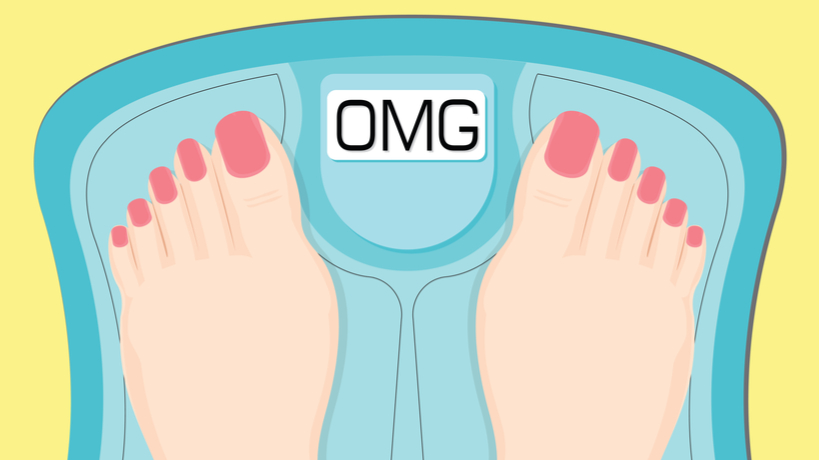You eat a balanced diet, you’re as active as ever, you visit your doctor regularly and everything seems to be in order. And still, you’re starting to get a little soft in the midsection. Why is that?
Unfortunately, middle-age weight gain is a thing, particularly for women. According to the Mayo Clinic, as women become menopausal, they start experiencing hormonal changes that make them more susceptible to abdominal weight gain. On top of that, as an individual nears age 50 (whether man or woman), muscle mass begins diminishing and metabolic rate starts dropping, making it increasingly more difficult to maintain a healthy weight. Excessive weight gain can also lead to a slew of health complications, like heart disease, type 2 diabetes, and certain kinds of cancer (like breast and endometrial cancers). While there’s no magic spell to reverse the aging process, there are ways to fight against the “middle-age spread.”
Eat more protein
Since you lose muscle mass as you get older, it becomes increasingly more important to incorporate proteins into your diet. Protein is instrumental in creating (and maintaining) muscle, so amping it up will help keep your gains. Plus, according to WebMD, high-protein foods can help boost your metabolism. While digesting protein-rich foods burns 30 percent of the calories you consume, only 5 percent is burned for fat and carbohydrates. Try adding more healthy, protein-packed foods to your diet like egg whites, lean meats and low-fat dairy foods, nuts, seeds and legumes.
Cut out the Cola
According to the Mayo Clinic, in order to maintain your current weight in your 50s, you might need to eat 200 fewer calories per day than you did at a younger age. Nixing the calorie-dense sodas and fruit drinks could help drastically reduce your calories (a 12-ounce can of Coca-Cola alone is 150 calories). Instead, opt for a water and spruce it up by adding in fresh fruit and herbs. You’ll start craving it more than any sugary drink, and you’ll help prevent middle-age weight gain!
Don’t skimp on breakfast
…even if you’re running late. Breakfast revs up your metabolism from the morning and keeps it vitalized all day. Plus, taking the time to construct a wholesome breakfast will start you off right, and help you stay on track for the rest of the day. Opt for a balanced meal high in protein, whole grains and healthy fats. A (hearty) smoothie or a protein shake is a great option if you need something on the go!
Try resistance training
It can be frustrating when you exercise but you can’t seem to shake off those extra pounds. As you get older, it gets increasingly difficult; your metabolism slows, and you start burning fewer calories during exercise. However, the more muscle you have, the more calories you burn. Incorporating more weight and resistance training into your workout regimen can help you gain more muscle and manage your weight. Try working in one or two days of resistance training to your routine; not only will it help ward off the middle-age weight gain, but it’ll also help keep your bones healthy!
Take probiotics
Probiotics are those tiny, living microorganisms found in fermented foods, like kimchi and yogurt, and have a number of health benefits. They’ve been found to improve digestion, heart health and immune function. However, several studies have suggested that, along with the slew of other positives, taking probiotics might also help with weight regulation. According to HealthLine, certain probiotics, like those from the Lactobacillus family, have been found to reduce the body’s absorption of dietary fat, fighting weight gain by increasing the amount of fat you excrete through your poop. Upping your probiotic intake, whether through food or through a supplement, could help you improve your gut health as you manage your weight.
Sources:
https://trendingposts.net/trending-health-news/prevent-middle-age-weight-gain/
https://www.mayoclinic.org/healthy-lifestyle/womens-health/in-depth/menopause-weight-gain/art-20046058
https://www.webmd.com/diet/features/reverse-middle-age-weight-gain#2
http://healthyeating.sfgate.com/diet-women-40-years-11434.html
https://www.healthline.com/nutrition/probiotics-and-weight-loss#section2
https://www.huffingtonpost.com/entry/how-women-can-lose-weight-after-40-especially-around_us_58fee72ee4b047ce3ee27b91



